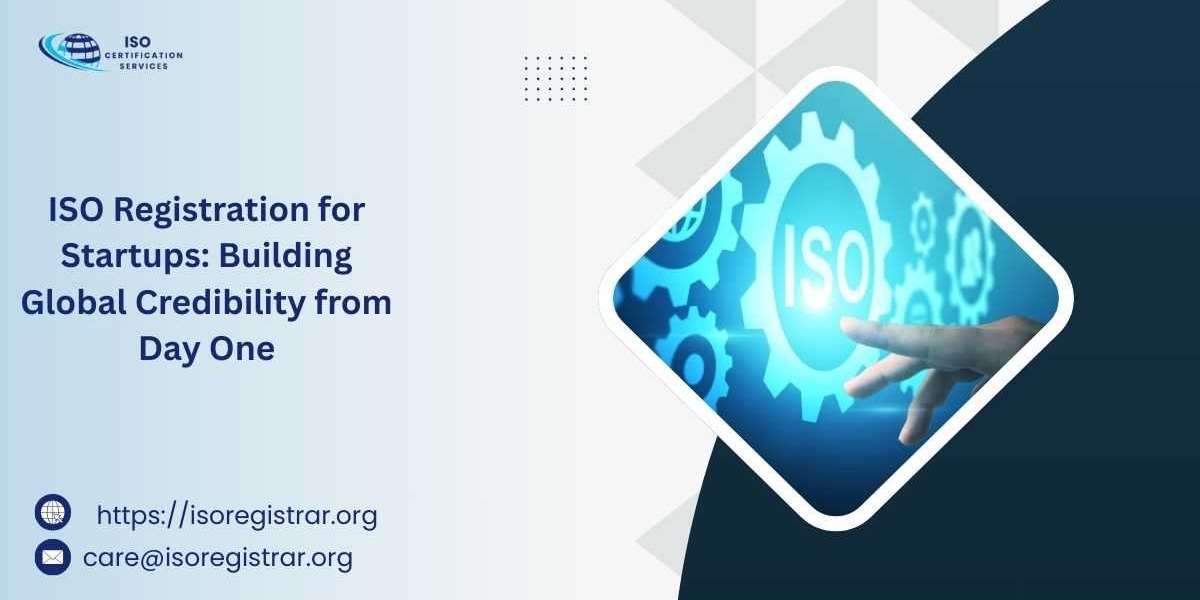Introduction
In today’s highly competitive, digitally connected, and quality-conscious market, being “just good enough” isn’t enough, especially for startups. Consumers, investors, and global partners are increasingly looking for signs of trust, professionalism, and consistency. One powerful way for a startup to signal that it’s ready for global standards is through ISO registration.
While ISO certification is often associated with large organizations or manufacturers, it is becoming an essential credibility tool for startups across industries. This article explores the importance of ISO registration for startups, the types of ISO certifications relevant to new businesses, the step-by-step registration process, the benefits, and key considerations, all through a unique startup lens.
What is ISO Registration?
ISO stands for the International Organization for Standardization, an independent, non-governmental body that develops and publishes international standards. These standards ensure that products, services, and systems are safe, reliable, efficient, and globally recognized.
ISO registration (or ISO certification) is the process through which a business becomes compliant with an ISO standard by undergoing evaluation from an accredited certification body. It demonstrates that your business:
- Follows best practices
- Has efficient internal processes
- Can consistently meet customer and regulatory requirements
Why Should Startups Care About ISO Registration?
Startups often operate in lean, chaotic environments where speed is prioritized over structure. But even in this context, ISO certification can be a secret weapon for several reasons:
Build Early Trust
Investors, clients, and international buyers often seek ISO-certified vendors as it signifies professionalism and reliability.
Access Global Markets
ISO standards are recognized internationally. Certification can unlock global supply chains and export opportunities.
Boost Operational Efficiency
ISO frameworks help startups create repeatable, scalable processes early, reducing errors, waste, and inefficiencies.
Gain a Competitive Edge
Startups with ISO certification often stand out in competitive bidding and tendering processes.
Attract Institutional Clients
Many corporations and government bodies prefer or require their vendors to be ISO certified.
Top ISO Certifications Suitable for Startups
Not all ISO standards apply to every business. Here are the most relevant ones for startups:
ISO 9001: Quality Management System
The most popular certification. Ensures your startup delivers consistent quality in products/services.
Ideal for: SaaS startups, product-based startups, services, manufacturing
ISO 27001: Information Security Management System
Ensures information security and data protection, especially crucial for tech startups.
Ideal for: Fintech, HealthTech, EdTech, IT startups
ISO 14001: Environmental Management System
Focuses on sustainability, waste reduction, and environmental compliance.
Ideal for: CleanTech, green startups, manufacturing
ISO 45001: Occupational Health and Safety
Focuses on employee safety and well-being.
Ideal for: Startups with physical operations, logistics, and construction
ISO 22000: Food Safety Management
Critical for food-tech and agriculture startups involved in handling or processing food.
Ideal for: Food startups, cloud kitchens, agri-based businesses
ISO Registration Process for Startups
Here’s a simplified step-by-step breakdown of how a startup can achieve ISO certification:
Choose the Right ISO Standard: Select the ISO standard that fits your business needs and aligns with your goals.
Visit the Certification Portal: Go to the official ISO certification website.
Fill Out the Application Form: Complete the online form, ensuring all details are accurate.
Submit Your Application: Review, submit, and double-check all details.
Payment: After submitting the form, pay the nominal charges.
Certificate Confirmation: A consultant confirms the ISO standard you're applying for.
Receive Your ISO Certificate: Once it’s approved, your ISO certificate will be sent to your registered email.
How ISO Certification Boosts Startup Growth
Sales Enablement: ISO certificates act as a trust badge on your website, pitch decks, and RFP responses.
Funding Investor Confidence: Investors view ISO compliance as a sign of structured growth, risk mitigation, and scalability.
Market Expansion: With ISO, startups can enter regulated sectors or export markets that otherwise require years of credibility building.
B2B Partnerships: Many corporations mandate ISO for partnerships or contracts, especially in IT, manufacturing, and food industries.
Tips for Startup Founders Pursuing ISO Registration
- Start with ISO 9001 if you're unsure—it covers quality management and is broadly applicable.
- Use free online documentation templates to save time and money.
- Assign a compliance lead internally to manage the project.
- Leverage cloud-based QMS tools for real-time monitoring and document control.
- Consider virtual audits to save travel and coordination costs.
ISO Certification and Government Support for Startups
In India and many other countries, ISO certification is supported through:
- MSME reimbursement schemes
- Startup India quality certification subsidies
- Export Promotion Councils offering financial assistance
Startups should check with their local District Industries Centre (DIC) or startup incubators for available funding and support.
NOTE:- Apply for ISO CERTIFICATION 9001 : 2015
Conclusion
ISO registration is more than a certificate; it’s a business philosophy. For startups, embracing ISO early is a smart investment in structure, trust, and global readiness. Whether you’re building the next fintech unicorn or a socially responsible food brand, ISO registration will set you apart in a crowded marketplace.
The road to certification may seem complex, but with the right guidance, mindset, and tools, it becomes a strategic asset—one that can elevate your startup from local contender to global player.








